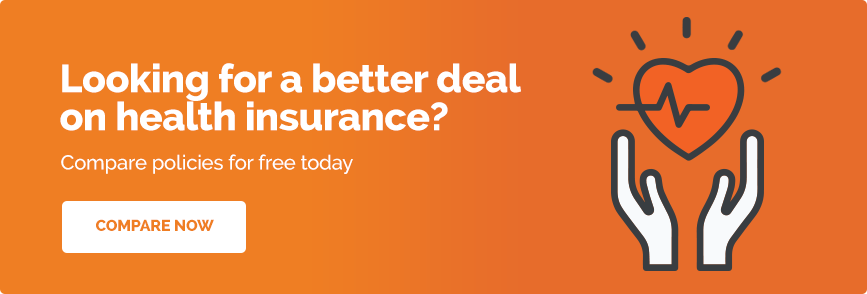Pre-Existing Conditions And Health Insurance Explained
Pre-Existing Conditions And Health Insurance Explained
Compare Health Insurance Policies
Save time and effort by comparing a range of Australia’s health funds with iSelect
What is a pre-existing medical condition?
Do the waiting periods start again if I switch policies?
Does a pre-existing condition mean you’ll pay more for health insurance?
Can a health insurer refuse to provide you with cover if you have a pre-existing condition?
Why is there a waiting period for pre-existing conditions?
What if your pre-existing condition hadn’t been diagnosed when you joined your health fund?
How do health insurers assess pre-existing conditions?
How will a pre-existing condition affect your health insurance policy?
Is pregnancy treated as a pre-existing condition?
Are there any exemptions on the waiting period for pre-existing conditions?
Does the two-month waiting period always apply to mental health conditions?
Purchasing health insurance with a pre-existing condition
What is a pre-existing medical condition?
A pre-existing medical condition is any ailment, illness or condition of which you had signs or symptoms during the six months prior to joining a health insurance policy (or upgrading to a higher level of hospital cover).1Privatehealth.gov.au – Waiting Periods
Do the waiting periods start again if I switch policies?
We’ve got some good news about hospital cover—you won’t usually have to re-serve your waiting periods all over again if you switch insurers or choose a new policy.2Commonwealth Ombudsman – Private Health Insurance | The Right to Choose (Page 2)
However, there are still some rules that you’ll need to follow. You’ll need to make sure that your old policy is paid up to date before you switch. You should also speak to your new insurer and confirm if they allow any gaps between the date your old policy ends and the new one begins.3Commonwealth Ombudsman – Private Health Insurance | The Right to Choose (Page 2)
Some insurers will require a seamless switch, with no breaks between the end of your old policy and the start of your new one, while others might allow a small break between policies. This could decide whether you have to re-serve your waiting periods, which is why you need to ask your new insurer about these conditions.
Important
The rules can also be a little different if you’re switching to a policy with extra benefits that weren’t included under your previous policy. In these cases, the insurer may require you to serve an additional waiting period before the extra benefits take effect.4Commonwealth Ombudsman – Private Health Insurance | The Right to Choose (Page 2)
Does a pre-existing condition mean you’ll pay more for health insurance?
No. Australia’s private health system is ‘community rated’ which means that health funds are prohibited from charging customers more based on their health status or claims history.5Private Healthcare Australia – Private Health Insurance Community Rating System. This means if you have a pre-existing condition you are entitled to purchase any type of hospital cover at the same price as someone without a pre-existing condition,6Australian Government Department of Health & Aged Care – About Private Health Insurance. although waiting periods may apply.
Can a health insurer refuse to provide you with cover if you have a pre-existing condition?
In short, no. By law, health funds must allow you to purchase hospital cover regardless of whether or not you have a pre-existing condition.7Privatehealth.gov.au – Waiting Periods Once you’ve served the required waiting period, you’ll be entitled to claim and receive any benefits available under your policy.
Just keep in mind this doesn’t count for any conditions that are normally excluded from your policy. For instance, let’s say you get some basic hospital cover that doesn’t include treatment for the heart or vascular system: it won’t matter if you end up claiming for a pre-existing heart condition or for one that developed after your policy started — neither will be covered as this was never included under your basic hospital policy.
For this reason, it’s always a good idea to read your policy brochure to see what kind of conditions are covered. These will often show up as a list of clinical categories on the brochure.
Why is there a waiting period for pre-existing conditions?
Without a waiting period for pre-existing conditions, there’d be nothing preventing someone from taking out hospital cover only when they felt they would need hospital treatment, and make a claim straight away.8Commonwealth Ombudsman – Private Health Insurance | The Right to Choose (Page 2)
If these new members then stopped their membership, the costs of their treatment would ultimately be paid for by longer term members, which isn’t a fair situation. Remember, people with pre-existing conditions can still access treatment in a public hospital under Medicare, even while they’re serving the 12-month waiting period with their private health fund.9PrivateHealth.gov.au – What is covered by Medicare?
Unfortunately, this means it’s extremely rare to find a policy where there is no waiting period for pre-existing conditions.
What if your pre-existing condition hadn’t been diagnosed when you joined your health fund?
The condition doesn’t need to have been previously diagnosed by a doctor, nor is it necessary for you to have been aware of it.10Privatehealth.gov.au – Waiting Periods A condition can be classified as pre-existing even if you hadn’t seen a health professional about it before you joined or upgraded your health insurance policy.11Privatehealth.gov.au – Waiting Periods
How do health insurers assess pre-existing conditions?
If your health insurer needs to decide whether or not your condition is pre-existing, they will appoint their own medical practitioner to assess the condition.12Privatehealth.gov.au – Waiting Periods It’s this practitioner who’ll decide if your condition is pre-existing, not your treating doctor.
However, the appointed practitioner will have to take into account any information provided by your doctor regarding signs and symptoms of the condition.
In deciding whether your condition is pre-existing or not, the health fund appointed practitioner needs to be satisfied that there’s a direct link between the ailment, illness or condition requiring hospital treatment, and the signs and symptoms you experienced in the six months prior to joining or upgrading your hospital cover.13Commonwealth Ombudsman – The Pre-Existing Conditions Rule
As the assessment process can take some time, it’s important to ensure you’re covered before going to hospital.14Privatehealth.gov.au – Waiting Periods
How will a pre-existing condition affect your health insurance policy?
Under the Private Health Insurance Act 2007, health insurers can only impose a maximum waiting period of 12 months on benefits for hospital treatment for pre-existing conditions.15Australian Government | Federal Register of Legislation – Private Health Insurance Act 2007 (Page 75)
Once you’ve been on your hospital cover policy for a continuous period of 12 months, the pre-existing condition waiting period will no longer apply, and you’ll now be eligible to receive the full benefits available under your policy.16Commonwealth Ombudsman – Private Health Insurance | The Right to Choose (Page 2)
Is pregnancy treated as a pre-existing condition?
While pregnancy obviously isn’t a pre-existing condition, it is treated in a similar way. Insurers generally apply a 12-month waiting period before you can claim for pregnancy and birth-related services.17Australian Government | Department of Health and Aged Care – Waiting periods and exemptions This means if you want to have the option of having your baby privately, it’s a good idea to take out or upgrade to pregnancy cover before you even start trying for a baby.
Are there any exemptions on the waiting period for pre-existing conditions?
There are certain exceptions to the 12-month waiting period for pre-existing conditions. These exemptions apply to:
- Psychiatric care: Hospital treatment for patients with psychiatric, mental, addiction or behavioural disorders.18PrivateHealth.gov.au – Clinical Categories
- Rehabilitation: Physical rehabilitation related to surgery or illness (such as stroke recovery or cardiac rehabilitation).
- Palliative care: Treatments to manage pain and provide quality of life for people with a terminal illness.
All of these treatments have a maximum waiting period of two months, even if they’re for a pre-existing condition.19Privatehealth.gov.au – Waiting Periods
Does the two-month waiting period always apply to mental health conditions?
Although you’d usually need to complete a two-month waiting period if you wish to upgrade your hospital cover to higher benefits for psychiatric care, there are some exemptions.20Privatehealth.gov.au – Waiting Periods
From 1 April 2018, people can upgrade without serving the two-month waiting period, in order to access higher benefits for psychiatric care within a private hospital.21Privatehealth.gov.au – Waiting Periods There are conditions to this exemption, including it only being applicable once per lifetime, and only if you have already completed an initial two-month membership on any level of hospital cover.
Purchasing health insurance with a pre-existing condition
Remember, if you have a pre-existing condition you can still purchase hospital cover with any health insurer – you may simply need to serve a waiting period before receiving the benefits of your cover. iSelect can help you compare* a range of health insurance policies and providers, in order to find a health policy for your needs. Call our friendly team on 1800 784 772 for more information.

Compare health insurance policies the easy way
Save time and effort by comparing a range of Australia’s health funds with iSelect
WE’RE HERE TO HELP
Need help with health insurance?
We can help you find a suitbable product for your needs

Health Insurance & Tax
Tax Implications on Health Insurance
About the Medicare Levy Surcharge
About the Life Time Health Cover Loading
Government Rebate & Means Testing

.svg)





